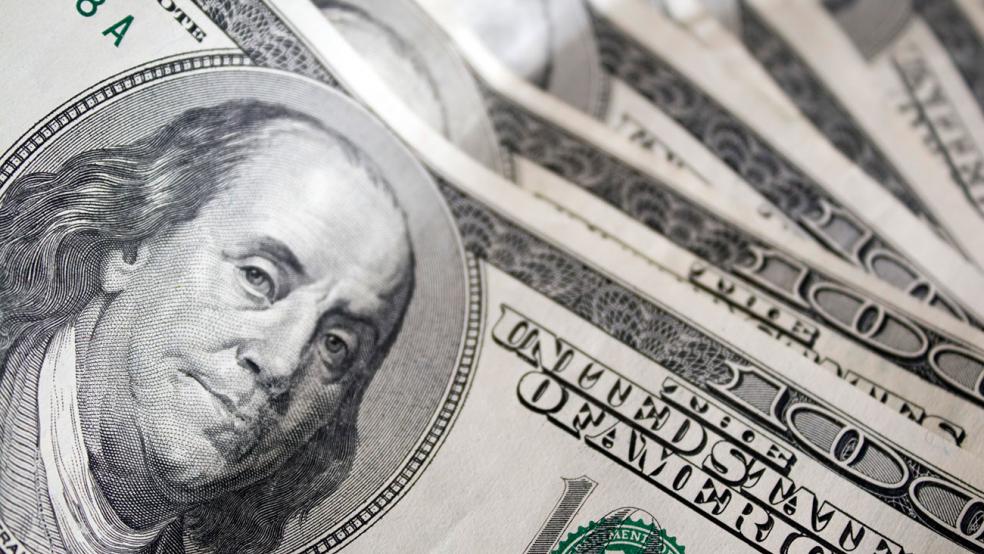Central bankers around the world are looking for help. The New York Times’s Jeanna Smialek reports: “As top economists from around the globe gather for their annual conference at Jackson Hole this week, they will have a collective hope in mind: That the world’s political leaders will work to help safeguard economic growth.”
Faced with slowing economies in Europe, China and the United States — and with interest rates already low or even negative — the fear is that central banks might not have many tools left to address a more severe economic downturn. That puts increased focus back on what political leaders can do to boost growth. “After relying primarily on money supply and interest rates for economic stimulus this decade, developed economies may finally be shifting the responsibility back toward fiscal policy – how the government sets spending and taxes,” Bloomberg columnist Conor Sen writes.
That’s particularly true in Europe. “We are at the point where, if we want to accomplish something — especially in countries like Europe — the ball is in the fiscal policy territory,” Roberto Perli, head of global monetary policy research at Cornerstone Macro, told the Times. But a fiscal response is complicated, he said, “by budget constraints in some countries and political constraints in other countries.”
In the United States, meanwhile, President Trump’s trade policies have added uncertainty for businesses and sparked some concern for consumers, whose confidence fell in August to its lowest level since the start of the year.
The policy uncertainty likely wasn’t helped by Trump’s reversals this week on the prospects of pursuing additional tax cuts. The president insisted Wednesday that the U.S. economy is strong and doesn’t need a boost in the form of new cuts, but if the White House was looking to provide some reassurance that there’s a steady hand on the economic tiller, the back and forth on a temporary payroll tax break may have undercut that effort.
Even so, Sen notes that the discussion of a payroll tax cut marks “the first time since the corporate tax cuts that the Trump administration has floated doing something to support economic growth other than complaining that the Federal Reserve needs to cut interest rates.” That might be viewed as an acknowledgment that fiscal policy will be needed to counteract the next downturn.
On the other hand, at points this week, the White House also seemed concerned that pursuing new fiscal stimulus might be seen as an acknowledgment that Trump’s economic agenda hasn’t worked as promised. Perhaps that’s why, even as the president was insisting that the economy doesn’t need a new tax cut, he continued to call on the Fed to act faster.
“Rather than recognizing that his protectionist trade policy might be the main culprit for U.S. economic performance falling short of his campaign promises, Trump chooses to set up Federal Reserve Chairman Jerome Powell as the scapegoat for any U.S. economic setback in the run-up to the 2020 presidential election,” Desmond Lachman of the conservative American Enterprise Institute wrote Thursday.
The politics of any fiscal stimulus package are bound to be difficult, especially given that the federal deficit is already approaching $1 trillion and is expected to top that level next year.
A 2017 study by Christina Romer, former chair of the Council of Economic Advisers under President Obama, and her husband, economist David Romer, found that countries with high debt-to-GDP ratios respond less aggressively to counteract financial crises. As a result, their economies suffered more. “If fiscal policymakers want to be in a position to pursue fiscal expansion in response to financial crises and other shocks, they need to eschew persistent budget deficits and maintain relatively low debt-to-GDP ratios,” the economists wrote.
The United States has done the opposite under the Trump administration. The question now may be whether policymakers will be willing to act anyway to give the economy a fiscal jolt when it needs one. The Romer study suggests that economic packages that combine deficit-financed stimulus in the short term with longer-run policies to bring down the debt might be less politically controversial.
As always, though, Trump is the wildcard in any potential fiscal plan. Former congressman Barney Frank (D-MA) told The Washington Post that, when it comes to forging a stimulus deal, the president could make already difficult political negotiations that much harder. “The classic ways to respond — reducing interest rates and pumping spending — are constraints. An even bigger constraint is the weirdness of Donald Trump,” he said. “There won’t be anything for [Democrats] to work with now.”




